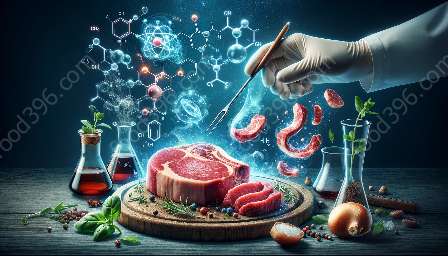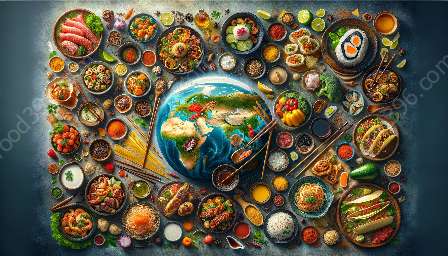International food laws encompass a comprehensive set of regulations and standards that govern the production, distribution, and safety of food products across international borders. As the food and drink industry becomes increasingly interconnected, understanding the intricate web of international food laws is crucial for businesses and consumers alike.
The Basics of International Food Laws
International food laws are designed to ensure the safety and quality of food products while facilitating international trade. These laws encompass a wide range of critical areas, including food safety, labeling requirements, import/export regulations, and food additives, to name a few. While each country has its own set of regulations, international food laws aim to harmonize standards to promote global food safety and facilitate international trade.
Food Safety Regulations
One of the primary concerns of international food laws is to establish and enforce food safety regulations that minimize the risk of foodborne illnesses and ensure the overall safety of food products. These regulations govern the handling, processing, and storage of food items to prevent contamination and ensure that they meet specific safety standards.
Labeling Requirements
International food laws also address labeling requirements, including the mandatory information that must be included on food packaging. This may encompass ingredient lists, nutritional information, allergen warnings, expiration dates, and country of origin labeling. Product labeling must comply with the standards set by each country to ensure transparency and consumer protection.
Import/Export Laws
The import and export of food products are subject to strict regulations to protect consumers and prevent the spread of diseases. These laws govern the transportation, documentation, and inspection of food items as they cross international borders. Compliance with import/export laws is essential for businesses engaged in international trade.
Key Players in International Food Laws
Several key organizations play critical roles in the development and implementation of international food laws. These organizations work to harmonize standards, conduct risk assessments, and provide guidance to ensure the safety and quality of food products.
Food and Agriculture Organization (FAO)
The FAO plays a pivotal role in developing international food standards and guidelines. It collaborates with the World Health Organization (WHO) to promote food safety and facilitate international trade. The Codex Alimentarius Commission, established by the FAO and WHO, sets international food standards to protect consumer health and ensure fair trade practices.
World Trade Organization (WTO)
The WTO oversees international trade agreements and enforces the rules governing trade between nations. It addresses trade barriers, including those related to food products, and resolves trade disputes to ensure a level playing field for countries engaged in food trade.
International Food Safety Authorities Network (INFOSAN)
INFOSAN serves as a global network of food safety authorities that facilitates communication and cooperation during food safety emergencies. It plays a crucial role in sharing information, coordinating responses, and mitigating international food safety risks.
Challenges and Emerging Issues
The landscape of international food laws is constantly evolving, presenting several challenges and emerging issues that impact the food and drink industry.
Complexity of Compliance
Adhering to diverse international food laws can be complex and resource-intensive for businesses, especially for small and medium-sized enterprises that lack the resources for comprehensive regulatory compliance. Navigating the intricacies of different standards and requirements across multiple jurisdictions poses challenges for global food supply chains.
Emerging Technologies and Novel Foods
The rise of novel foods and innovative food technologies presents new challenges for international food laws. Regulators face the task of assessing and regulating these novel food products to ensure their safety and compliance with existing standards, all while promoting innovation in the food industry.
Global Harmonization Efforts
Efforts to harmonize international food standards face ongoing challenges due to varying national interests, cultural considerations, and economic priorities. Achieving global harmonization requires continued collaboration and negotiation among countries, organizations, and stakeholders.
Implications for the Food and Drink Industry
Understanding and complying with international food laws is essential for businesses operating in the food and drink industry. Non-compliance can lead to regulatory enforcement actions, product recalls, and damage to brand reputation. Conversely, adherence to international food laws fosters consumer trust, supports market access, and contributes to the overall safety and quality of food products.
Market Access and Trade Opportunities
Compliance with international food laws enables businesses to access global markets, expand their reach, and participate in international trade. By meeting the standards of different countries, businesses can tap into diverse consumer bases and leverage trade opportunities on a global scale.
Consumer Confidence and Transparency
Adhering to food safety and labeling requirements instills consumer confidence in the quality and integrity of food products. Transparent labeling and compliance with international standards demonstrate a commitment to consumer safety and engender trust among consumers, leading to stronger brand loyalty and repeat purchases.
Conclusion
International food laws form the cornerstone of global efforts to ensure the safety, quality, and transparency of food products. While navigating the complexities of these laws presents challenges, compliance with international standards is crucial for businesses aiming to thrive in the global marketplace. By staying abreast of evolving regulations and engaging in global harmonization efforts, the food and drink industry can contribute to a safer, more interconnected world of food trade.




































